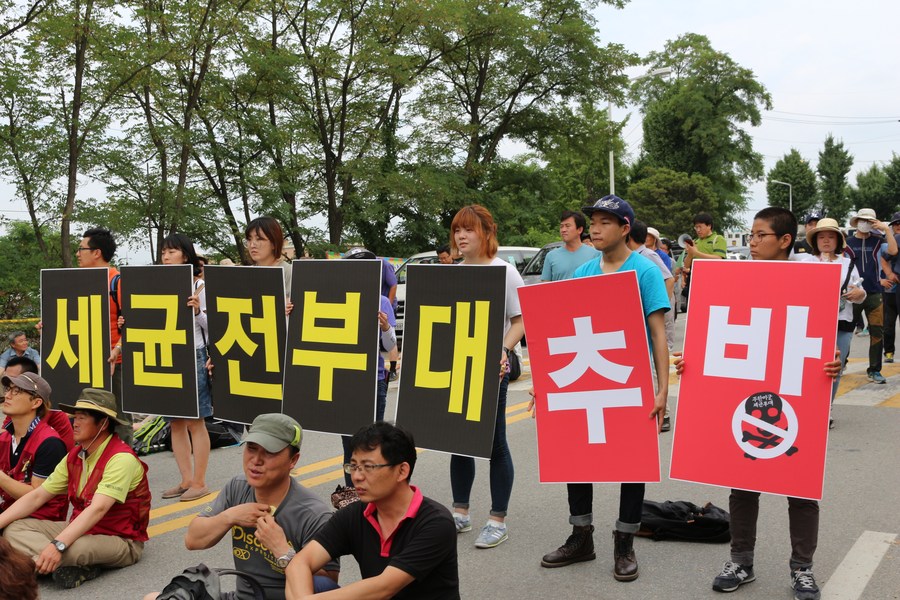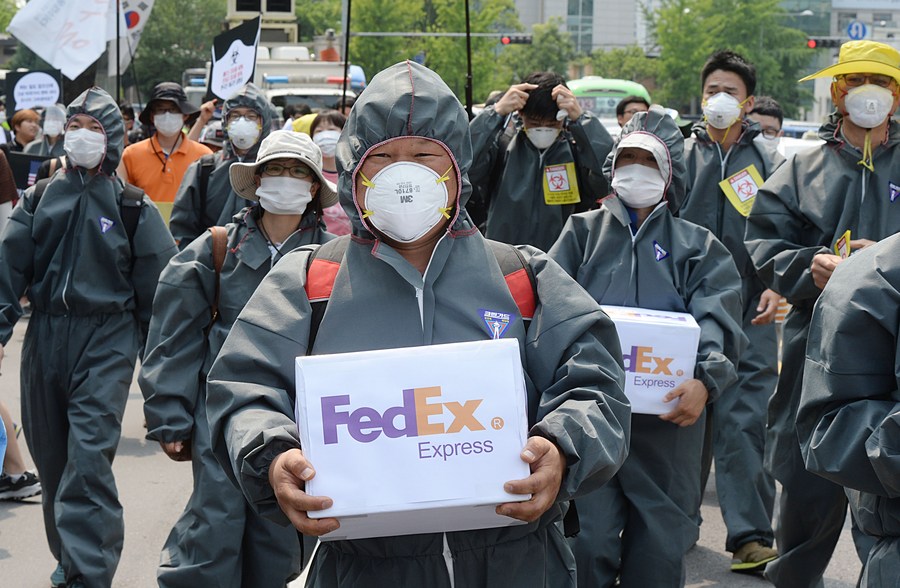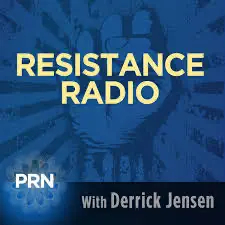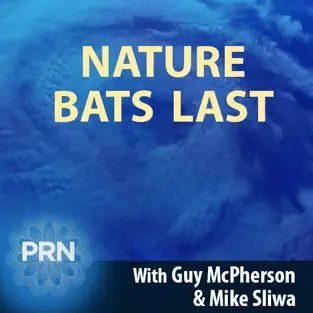SEOUL, July 16 (Xinhua) -- Worries over the U.S. military's biochemical experiment in South Korea have recently deepened, as the U.S. Forces Korea (USFK) is reportedly expanding a scandalous program it claims to be a defense system against biochemical threat.
South Korean civic groups and local residents have accused the U.S. military of deploying a germ warfare unit and conducting chemical and biological experiments in the country, calling for closure of the related facility.
However, the U.S. project is still underway, though the name has been changed from Jupitr to Centaur.
(Video reporters: Lu Rui, Tian Ming, Kim Ho-min; Video editor: Liu Yuting)
Biochemical Program
The Jupitr program, officially the Joint USFK Portal and Integrated Threat Recognition, a so-called strategic initiative aimed at defending against biological, chemical, and radiological weapons, was made known here in 2015 and believed to have been launched in 2013.
Local weekly magazine Sisa Journal reported that the Jupitr project involved experiment with living toxic samples, citing the "whole system live agent test (WSLAT)" mentioned in the fiscal year 2018 budget estimates of the U.S. Department of Defense.
The Jupitr program's experiment results will be used by the U.S. military through programs such as EMBD, or Enhanced Maritime Biological Detection that the U.S. Navy began in 2017, according to the journal.
As a follow-up project of Jupitr, the Centaur program, or Capabilities to Enable NBC (nuclear, biological, chemical) Threat Awareness, Understanding and Response, will be completed by the USFK by the end of this year, South Korean broadcaster JTBC reported, citing experts' analysis.
The Centaur program inevitably entails an experiment in preparation for biochemical warfare, according to JTBC.
Trying to defuse public worries, during a briefing near the U.S. military base in Busan Port Pier 8 in December, the USFK said the Centaur program is an early warning defense system against biological threat rather than a biological experimentation research program.

However, experts have questioned the USFK's claim that the dead samples of botulinum and other pathogens had been brought in and used with notifications of the Centers For Disease Control and Prevention and the customs department.
"A living germ is used as it grows (when testing). If inactivated with radiation, it cannot be used as a specimen because the DNA is broken. What the U.S. military said (last December) did not make any sense," Woo Hee-jong, a professor at the Seoul National University, was quoted by JTBC as saying.
Meanwhile, JTBC reported that the USFK's biochemical project has been expanding and evolving.
A job ad posted on the website of Battelle Memorial Institute in March showed that it was "currently seeking a Command Post operator" in six locations including Busan, Daegu, Seoul, Dongducheon, Waegwan and Jinhae district in Changwon, where the USFK bases are located.
Previously, the Centaur program had been known to be run only at the USFK base in South Korea's southeast port city of Busan.
As a U.S. nonprofit research institute working with the U.S. military, Battelle has been commissioned to operate Centaur command posts set up by the USFK, according to local newspaper Hankyoreh.
Live Toxic Samples
Inside a three-kilometer radius of Busan Port Pier 8 are some 20 primary and secondary schools, and 30 apartment complexes as well as public institutions and facilities.
The USFK has denied allegations that it is conducting biological tests using hazardous materials such as live agents or toxins, but concern remains about the biochemical experiment with live toxic samples given the USFK's false report in the past.
A probe by the U.S. Department of Defense, released in July 2015, found that a U.S. military lab in Utah had failed to neutralize live anthrax spores and shipped the toxic samples to researchers in 86 laboratories in the United States and seven other countries, including South Korea.
In May 2015, the USFK said in a statement that the anthrax sample experimentation program was conducted at the Osan air base, some 55 km south of Seoul, the first time in the year, Yonhap news agency reported.
Citing the result of a joint investigation conducted by the South Korean and U.S. militaries, Yonhap reported in December 2015 that the USFK's statement proved to be false as it had conducted 15 experiments using dead anthrax samples at the Yongsan Garrison in Seoul from 2009 to 2014.
It was belatedly known that the USFK also brought in specimens of plague bacillus when it brought the dead anthrax samples into South Korea.

Public Outrage
The controversy over the USFK's experimentation research with live anthrax samples remains as concerns and fears are growing among civic groups and local residents in South Korea, especially in cities where U.S. experiment labs are located.
Sisa Journal reported that worries about South Korea degenerating into a "biochemical test site" for the U.S. military have surged in the country.
Several non-governmental organizations took to the streets to protest the alleged biochemical experiment by the U.S. military in South Korea last year when the USFK held the briefing at Busan Port Pier 8.
The Busan residents' countermeasure committee for expelling U.S. military bacterial weapons laboratory in Pier 8, one of the civic groups, demanded the immediate stop of all USFK experiments relating to the development of bacterial weapons and cancellation of "deceptive" briefings.
Such briefings are "nothing more than an excuse to avoid worsening public opinion," the committee said, calling for the shutdown of the laboratory to protect the lives and safety of citizens.
"The USFK is trying to turn South Korea into a bacteria experiment base as intended by the United States," said Kim Seok-hoon, director of the Nam-gu Countermeasure Committee in Busan, another group of residents protesting against U.S. biochemical experiment. "This is something that can never be tolerated," he said.
![]() Please help keep us afloat. Donate here
Please help keep us afloat. Donate here



